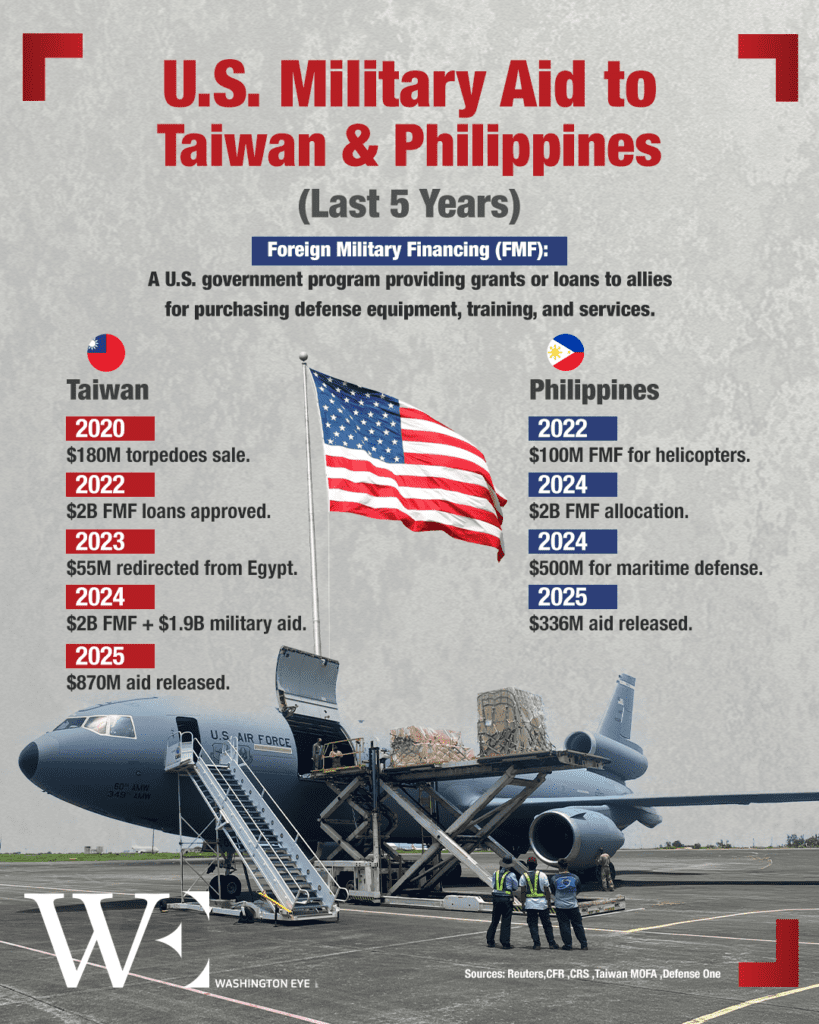In a significant policy shift, U.S. Secretary of State Marco Rubio has exempted security assistance programs for Taiwan and the Philippines from a comprehensive foreign aid freeze initiated by President Donald Trump. This decision underscores the United States’ strategic commitment to its allies in the Indo-Pacific region, even during its reassessment of its global aid distribution.
The Aid Freeze Directive
Shortly after assuming office on January 20, 2025, President Trump ordered a 90-day suspension of foreign aid to evaluate its alignment with his “America First” agenda. This suspension affected a wide array of programs, from humanitarian assistance to military support. Notably, initial exemptions were limited to military aid for Israel and Egypt, reflecting their longstanding alliances with the U.S.
Exemptions for Taiwan and the Philippines
Amid the broad suspension, Secretary Rubio authorized the release of $5.3 billion in previously frozen funds, primarily targeting security and counternarcotics initiatives. This allocation includes $870 million designated for Taiwan and $336 million aimed at modernizing the Philippine security forces, according to Reuters. These exemptions highlight the U.S. administration’s focus on bolstering defense capabilities in regions facing significant geopolitical challenges.
Reactions from the Philippines
Philippine’s Ambassador to the United States, Jose Manuel Romualdez, stated, “We are very pleased with this development… This is another significant sign that our strong partnership and alliance with the United States remains intact with the new Trump administration.” The Department of Foreign Affairs also emphasized the mutual commitment to strengthening defense cooperation and interoperability between the two nations.
Implications for U.S. Foreign Policy
This strategic allocation of funds indicates a recalibration of U.S. foreign aid priorities, emphasizing security interests in the Indo-Pacific region. While humanitarian programs have seen significant reductions, the continued support for military initiatives in Taiwan and the Philippines suggests a focused approach to countering regional threats and maintaining stability.
Final Note
The exemption of security assistance to Taiwan and the Philippines from the U.S. aid freeze reflects a deliberate policy choice to prioritize defense partnerships in critical areas.
For Taiwan, the continued flow of security funds reinforces its defense capabilities amid increasing pressure from China. The $870 million allocation will support Taiwan’s military modernization efforts, including advanced defense systems and joint training programs with U.S. forces. This exemption serves as a clear signal of U.S. support for Taiwan’s autonomy and security, aligning with longstanding bipartisan support in Washington for the island’s self-defense capabilities.
In the Philippines, the $336 million in security assistance will be directed toward enhancing maritime defense, counterterrorism efforts, and interoperability between U.S. and Philippine forces. This funding comes at a crucial time, as tensions in the South China Sea continue to escalate, with frequent confrontations between Chinese and Philippine vessels. The exemption reinforces the 1951 U.S.-Philippines Mutual Defense Treaty, ensuring that Manila has the resources to protect its sovereign rights in contested waters.
Looking ahead, the decision to prioritize security over humanitarian aid will likely shape U.S. foreign relations, particularly with countries that rely heavily on non-military assistance.
















